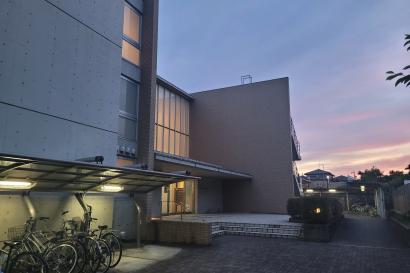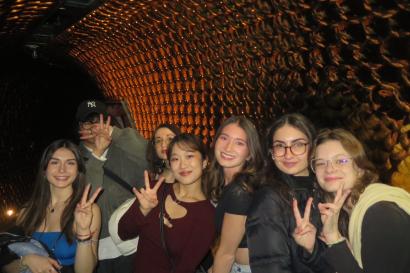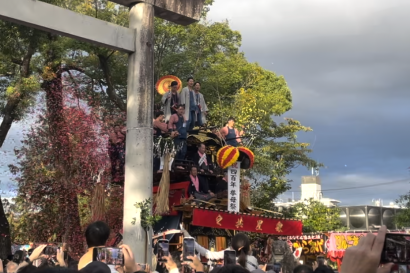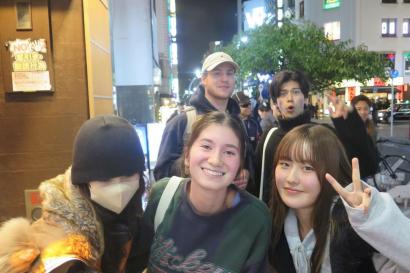I’ve spent my entire life trying to figure out how to cope with life in general, and I knew this would be a big challenge for me—not only just because of being autistic, but also because of my mental health.
Honestly, though, I feel like Japan was kind of perfect for me. The only downside I can think of is the fact that the society is sort of based on perfectionism, which is not good for my mental health. However, the expectations are slightly less harsh for foreigners in my experience. In addition to the whole perfectionism thing, there is definitely a need to conform which was difficult for me because it’s already hard enough to fit in America, but, like I said before, the expectation is less-so because of being a foreigner.
But onto the good things: first off, the punctuality of everything was so helpful for me, especially with the transportation system. If it said it was going to come at a certain time, it 100% would, there were never any doubts about it. It was very easy to set a routine and plan out things simply because of that. Even when it came to school, everything was on the dot, so I always knew what to expect. Also, with that—just in general, everything is always exactly what you expect it to be/very orderly. Secondly, in my opinion, I think Japan is immensely less overstimulating than America. On my flight back, as soon as I stepped into America I felt like I was about to explode from overstimulation. I had honestly forgotten how loud everything was in the states. Even in the subways in Japan, I never felt too overstimulated and if I did, I could just put my earplugs in and it would be completely fine. Everyone (for the most part) is so respectful and considerate, especially when it comes to noise. If people do talk on the subways, it is not very loud, and that seems to be the same across the board. The subway stations themselves can get pretty bad (especially if they are really big like Nagoya-eki), so I always prepared myself for that. I am very glad that I opted for Nagoya instead of Tokyo because I only went to Tokyo once, and don’t get me wrong, it was incredibly cool/fun, but it was a lot to take in, especially stimulation-wise. Nagoya is very much a good mix of urban and rural for me because there aren't too many people, but there are also a bunch of really fun things to do and explore (and it’s really accessible).
One other cool thing that I liked is the interactions with workers. They are always super polite and focus on their job, whereas in America I feel like I have to read social cues a lot more, especially when they want to have small-talk. Another thing I really appreciate that goes along with that are the restaurant expectations and such—you aren’t really expected to have small talk prepared or anything, it’s very straight to the point. Plus, there are even restaurants where you don’t have to talk to anyone at all, which is like my favorite thing in the world. Also, going on that, I also absolutely love the food in Japan, so that helped a lot, but I know for other people in the program it was a struggle.
Speaking of other people in the program, I think that I found an amazing community there. A lot of the people there are neurodivergent as well as queer (it kind just comes along with a lot of the people that are interested in Japan, conveniently). Because of that, I made so many new friends that I will never forget. I also think that because I knew that I would probably never see them again unless I actively went out of my way to interact with them since we lived so far apart, I allowed myself to be more myself and put myself out there more. I have always struggled with worrying about what other people think of me, but because of the lack of permanency, I stopped worrying about it nearly as much. After being back in America for a week or so, I think that a bit of that is starting to come back, but I think it’s improved significantly because of this experience. I think I am also just more myself now and know more about myself/the world in general.
In terms of schooling, I did get a few of the accommodations that I have at my home university, but not as much. I think that there is definitely a lack of understanding from the administration about Autism/mental health, but everything else kind of makes up for it. I think the workload was a lot, and a little exhausting because of the length of the classes, but everything was really straight-forward which helped so much. I could easily schedule out exactly what I had to do each day because we were given the lesson plan/assignments for the whole year, and that was consistent for most of my classes.
Although I am back, this is an experience I will never forget. And I will 1000% be coming back to Japan (possibly live there if I can). I have learned so much about so many things, and I am forever grateful for all the experiences I have had and even being able to come to Japan in the first place. It was hard to get used to, but I think I have thrived so much and I will carry these experiences for the rest of my life. I will not only miss Japan, but studying abroad as well so very much. I was worried about so many things before I left, but it was honestly one of the best experiences of my life. In my first post, I talked about keeping the mindset of finding peace in the unknown, and reassuring myself that all the things I had worried about could go extremely well instead. And I wish I could tell myself then how true that really was. There may have been hard times, but it was better than I could have even imagined. And I really hope I can carry that lesson throughout life.

Macks Koontz
Hello! My name is Macks and I'm a sophomore at the University of Tennessee majoring in Child and Family Studies with a minor in Japanese. I love learning, hiking, reading, and playing the guitar/ukulele. Studying abroad is super important to me and I am so very excited to be able to share my journey with other people :)






